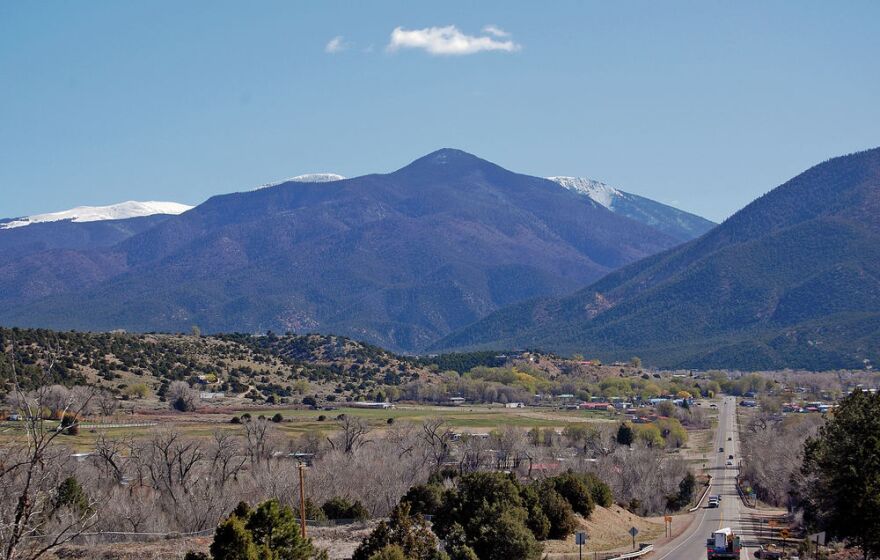For more than 400 years, the mountains of northern New Mexico have cradled a dialect of Spanish that exists nowhere else on earth. Now, the sound of the language is fading from the towns where it once flourished. The New York Times's Simon Romero reported on this recently and spoke to KUNM about the language he grew up with and what future he sees for it
SIMON ROMERO: So I was raised in Ribera, which is a little village right there on the Pecos River in San Miguel County, and I was surrounded by the language growing up, you could hear it all over the place on the playground, in town, in stores, wherever you went. Especially among older people, but even amongst a lot of the friends that I grew up with.
I grew up with some proficiency in it. And then after that, I went off to college and then I started working largely abroad and in Latin America, and became exposed to different types of Spanish. And I always just was drawn to the comparison between the types of Spanish that I was living in and working in, in Latin America and the type of Spanish that I grew up with.
And it just struck me that it really is a treasure that we have in northern New Mexico, it's something incredibly special, especially since we're in an English speaking country, and the language has survived this long. There's something about it, that about the people who kept it alive that preserved it, until today.
KUNM: So definitely something people tell me in northern New Mexico is that the Spanish spoken that is a version of 16th century Spanish, Golden Age Spanish, something preserved in amber almost in this mountainous region. Your piece tells a more complicated story, tell me a little bit about that
ROMERO: Northern New Mexico Spanish or traditional New Mexican Spanish, as linguists often call it, is really enveloped in myth that it's this perfectly preserved specimen of Golden Age Spanish. That may include some elements that are true, but I'm just amazed at how much more complex the real story is.
And it goes right back to the earliest settlement of New Mexico. At that time, yes, some of the colonists were from Spain, but others were from Portugal or Greece even. And you also had people who were mestizo coming up from different parts of Mexico. And you also had indigenous peoples from Mexico as part of that colonizing expedition who spoke Nahuatl. So really the type of Spanish that evolved in northern New Mexico is much more Mexican influenced Spanish, than Spanish from the other side of the pond. But then it evolved in isolation, and became something really unique.
KUNMB So tell me a little bit about the future of this dialect. What are the threats to it? And do you see any encouraging signs for its preservation
ROMERO The future, what we could determine right now, I think that really remains something that's somewhat elusive at this point in time.
A lot of the speakers are aging. My dad's generation, he's in his 80s right now, and he speaks perfect New Mexican Spanish, but I don't. I speak another kind right now. So I see sort of a gradual decline happening.
I also have friends who I grew up with, who speak the language with their kids and who are really trying to keep it alive. But it's hard, in addition to policies of the past, which actually really cracked down on the use of Spanish. Many children speak of being punished, my dad amongst them, for daring to speak Spanish in school. That kind of historical trauma is also difficult for a lot of people to get past.
But I've also been to other places. I've written about other types of language revitalization efforts in different parts of the Americas and different parts of the world. So this is something that can be done. And so it was really heartening to see a lot of the responses that we got to this article from many people in New Mexico but from also many people in the New Mexican, the wider New Mexican diaspora, generations of people have moved out of the region and they still feel connected. So who knows? Maybe there's an avenue for rejuvenation there.




